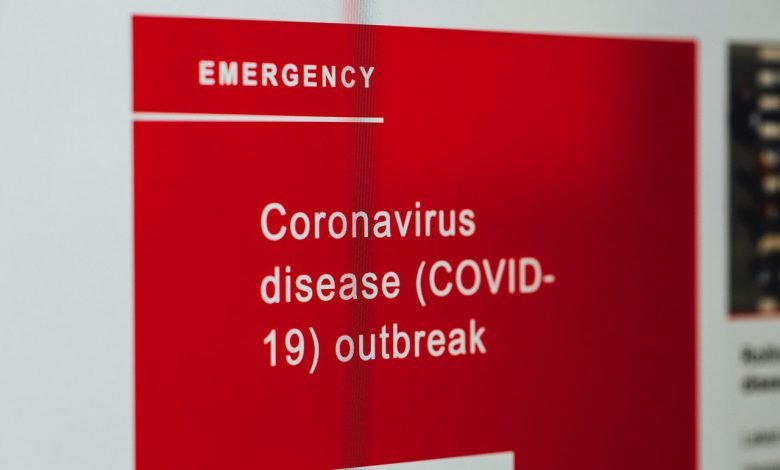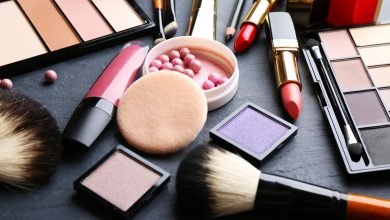
How to Adopt Protective Lifestyle in Covid-19 Pandemic
COVID-19’s fast expansion to nearly every area of the globe has caused huge health, economic, environmental, and social issues around the world. Every single profession has been affected by this pandemic.
The coronavirus illness (COVID-19) pandemic is posing an unprecedented threat to the planet.
However, it is uncertain whether this will have an impact on people’s habits. Every institute is facing many problems due to uncertainty in the universe.
When the first wave of this pandemic came in different parts of the world, the World Health Organization (WHO) recommended to the affected countries to implement a lockdown. Later, many other different suggestions were given by WHO to safeguard lifestyle.
Some Protective Instructions and Precautions for leading Healthy Lifestyle
As per government restrictions, the influence of this disease is decreased. To get rid of the spread
of COVID-19, highlight social issues.
The most huge change that this pandemic grows is the change of thoughts about everything.
Negativity is now common in the mindset
of the people.
There were links found between less healthy lifestyle habits and negative
mental health outcomes, which is essential to examine because lifestyle habits may be changed.
These are given below;
-
To Take proper Diet food
The main and most important instruction is to take care of your diet and to take healthy foods to protect yourself from this pandemic. Maintaining a balanced diet may aid in the fight against COVID-19 by boosting your immune system. Many fruits and vegetables are helpful in developing health which is needed to avoid many harmful diseases.
This kind of diet may really help you in boosting or uplifting your immune system. To get such nutritious foods instead of junk food items, you need to make a routine a habit.
On a daily basis, you need to gain or obtain rich nutrients like vitamins, proteins, grains, minerals to maximize your immunity. Drink plenty of water. Reduce your risk of obesity, heart disease, stroke, diabetes, and certain types of cancer by avoiding sugar, fat, and salt.
-
To maintain positivity in your mindset
Keeping a positive attitude during a global pandemic might be difficult. It’s critical to look after your mental health while under COVID-19 isolation. It’s easy to get into an unproductive.
mindset when you’re confined inside. Worrying about what’s going on in the world.
Physical activity stimulates the production of chemicals in our brains that improve our mood and overall sense of well-being. Getting some activity into your day is an easy approach to keep a positive mentality while you’re alone.
There are many other activities that may aid people to do in quarantine periods like cooking, gaming, online education, etc. In these activities, people stay positive in lockdown.
-
Avoid physical contact with others
It is also a useful and dominant instruction recommended by WHO, is to avoid or prevent any physical communication with other people by means of social distancing. Physical separation is being utilized to emphasize the significance of preserving physical space when in public areas as towns reopen and individuals spend more time in public.
For example, in a hospital, a large number of people present or gathered in this sensitive place are very conscious or reactive. So people must follow these important rules like wearing surgical masks,
Surgical Suits, and avoid physical contact which may help to prevent or secure from this pandemic.
-
Stay connected or in touch with our relatives
Because of the pandemic, traveling or outing is not a safe thing. So there are some online applications like Whatsapp, Skype, zoom, and other apps that are used to communicate. This makes you feel happy and motivates you that your loved ones are safe and connected.
Some countries have banned flights for traveling to other countries, so people can’t travel or go to their homeland. These applications are really supportive for getting news of the family and relatives. So, it’s strongly advised to everyone to stay connected and in contact with their relatives or friends.
-
To ensure the safety of children
The WHO declared the health of children as first priority. Many students also collect fundamental tools to help them succeed in school. Use facemask to protect mouse and nose. This is a straightforward, tried-and-true method of protecting pupils who have not yet received the vaccine or who have chosen not to receive it.
When possible, students should sit at least 3 feet apart in classrooms. To deal with separation, schools should employ outdoor spaces and underused facilities for instruction and meals. Singing, playing in a band, and exercising, for example, are best done outside and spaced out.
Families should keep an eye on their children’s health and keep them at home if they have a temperature of more than 100.4 degrees Fahrenheit or show any signs of illness. Early research suggests that children under the age of ten are less likely to become infected with the virus and transmit it. However, schools must still prepare for exposures, especially with new virus strains circulating.
-
Start exercising or workout
Workout or exercise is very necessary for human health but due to the pandemic everything is closed, the public places like gyms, parks, swimming pools are closed, so the people are not able to do exercise or workout.This will prevent them from getting into any dangerous disease.
Conclusion
The main headline of this content is to point out some beneficial postulates or precautions which may assist in adopting a secure lifestyle to live in this ongoing pandemic.
This may be possible when we endorse these precautions as mentioned above. The COVID-19 will take some time to vanish from the world as the vaccination process is still going on until we have to change our lifestyle accordingly.
As we know that this pandemic has become part of our lives and is still ruining our lives badly. Most governments throughout the world appear to have misjudged the risks of speedy COVID-19 spread and have been primarily reactive in their crisis response. Because disease outbreaks are unlikely to go away anytime soon. Aggressive international action is necessary to preserve lives while simultaneously safeguarding economic growth. This may be done by uniting on one platform to overcome this crisis caused by epidemic COVID-19. The World Health Organization (WHO) advised affected nations to impose a lockdown after the first wave of the epidemichit different regions of the globe. WHO later issued a slew of other recommendations to protect people’s lifestyles.



